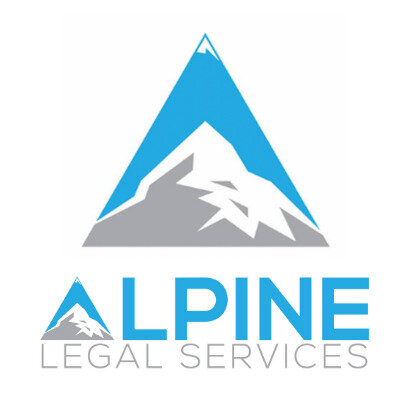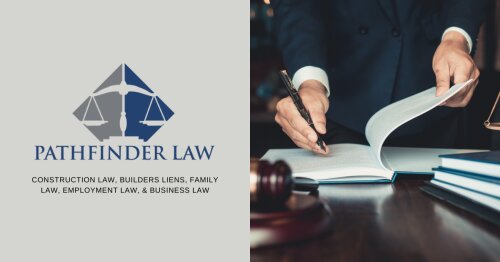Best Landlord & Tenant Lawyers in Abbotsford
Share your needs with us, get contacted by law firms.
Free. Takes 2 min.
Free Guide to Hiring a Real Estate Lawyer
List of the best lawyers in Abbotsford, Canada
About Landlord & Tenant Law in Abbotsford, Canada
Landlord and tenant law in Abbotsford, British Columbia, outlines the rights and responsibilities of both landlords and tenants in residential rental housing. These legal guidelines are intended to create a fair, predictable relationship between both parties and are primarily governed by the Residential Tenancy Act (RTA) of British Columbia. Whether you are a landlord renting out a property or a tenant renting a residence, understanding these laws helps ensure your interests are protected and can reduce the likelihood of disputes.
Why You May Need a Lawyer
Many people involved in landlord and tenant matters in Abbotsford can resolve issues amicably. However, legal challenges sometimes arise that require professional guidance. Common situations when you may need a lawyer include:
- Eviction disputes, such as disagreements over proper notice
- Unpaid rent or damage claims where the amounts are significant
- Illegal entry or privacy violations by either party
- Questions or disputes about lease terms and their interpretation
- Handling issues related to repairs, maintenance, or unsafe living conditions
- Addressing discrimination or harassment, including human rights violations
- Guidance on BC’s complex tenancy laws and regulations
Legal advice ensures you are aware of your rights and obligations and helps you avoid costly mistakes that could result in fines or a loss of housing.
Local Laws Overview
Landlord and tenant relationships in Abbotsford are regulated by the British Columbia Residential Tenancy Act and its associated regulations. Some key aspects include:
- Leases and Tenancy Agreements: All tenancies require a written or verbal agreement outlining rent, duration, and other terms. Fixed-term and month-to-month tenancies are the most common.
- Security Deposits: Landlords can request a security deposit (typically up to half a month’s rent) and may also request a pet damage deposit. Proper procedures for collecting and returning these deposits are set out by law.
- Rent Increases: Landlords can raise rent only once every 12 months, and only by an amount set by the provincial government. Advance written notice is required.
- Maintenance and Repairs: Landlords must maintain the property in a safe state. Tenants are responsible for ordinary cleanliness and minor repairs. Major repairs must be completed by the landlord.
- Evictions: Certain grounds, such as unpaid rent or breach of agreement, allow landlords to evict tenants, but strict notice procedures must be followed. Tenants may contest evictions.
- Privacy: Landlords must provide advance written notice, typically 24 hours, before entering a rented unit unless there is an emergency.
- Dispute Resolution: The Residential Tenancy Branch provides an online and in-person dispute resolution process similar to a tribunal hearing.
Local bylaws in Abbotsford may also affect issues such as zoning, parking, or property standards, so it is important to be aware of municipal rules in addition to provincial regulations.
Frequently Asked Questions
What rights do tenants have regarding repairs and maintenance?
Tenants have the right to live in a rental property that is in good repair and meets health and safety standards. Landlords are responsible for major repairs and ensuring the property meets basic standards, while tenants must keep the property clean and report any damages promptly.
How much notice must a landlord give before entering the rental unit?
Landlords must provide tenants with at least 24 hours’ written notice before entering the rental unit. The notice should state the reason for entry along with the date and time (between 8 a.m. and 9 p.m.). Exceptions apply for emergencies.
Can a landlord evict a tenant without cause?
Eviction without cause is generally not permitted. The most common reasons for eviction include nonpayment of rent, significant damage, or the landlord needing the unit for personal use. Proper notice, as set out in the Residential Tenancy Act, is always required.
What happens if a tenant does not pay rent?
If a tenant fails to pay rent, the landlord can serve a 10 Day Notice to End Tenancy for Unpaid Rent. If the tenant pays the outstanding amount within five days, the tenancy continues. If no payment is made, the eviction process can proceed.
How can a security deposit be returned?
After a tenancy ends, the landlord must return the security deposit within 15 days, unless both parties agree in writing to deductions or there is a dispute filed with the Residential Tenancy Branch.
Is a written lease mandatory in Abbotsford?
No, but it is highly recommended. Verbal agreements are legally binding, but a written lease helps clarify rights and responsibilities and makes resolving disputes easier.
Can a landlord raise the rent at any time?
No. Rent can only be increased once every 12 months, and the landlord must provide at least three months’ written notice. The annual allowable percentage increase is set by the province each year.
What if the tenant or landlord disagrees with a decision made by the other?
Either party can apply for dispute resolution with the Residential Tenancy Branch. This process is akin to a tribunal, where a decision-maker hears both sides and makes a binding determination.
Who is responsible for pest control?
Typically, landlords are responsible for ensuring the property is free of infestation at the start of a tenancy and for treating infestations during the tenancy unless the tenant caused the problem through negligence.
What if a tenant wants to sublet or assign the rental unit?
Tenants may request permission to sublet or assign their tenancy, but landlords must not unreasonably refuse the request. Written consent is usually required, and there are specific rules and procedures in the Residential Tenancy Act.
Additional Resources
Those seeking further information or support regarding landlord-tenant matters in Abbotsford can consult the following:
- Residential Tenancy Branch of British Columbia - provides resources and dispute resolution
- Tenants Resource and Advisory Centre (TRAC) - offers tenant support and legal information
- Legal Aid BC - for low-income individuals seeking legal assistance
- People’s Law School - accessible legal education on tenancy matters
- City of Abbotsford Bylaw Services - information on local housing standards and enforcement
Next Steps
If you need legal assistance related to landlord and tenant issues in Abbotsford, consider the following steps:
- Gather all related documentation, such as your lease, correspondence, and relevant receipts
- Educate yourself about your rights and responsibilities under the Residential Tenancy Act
- Attempt to resolve the issue directly with the other party, if possible
- Contact the Residential Tenancy Branch for advice or initiate a dispute resolution
- If the matter is complex, involves significant money, or concerns your housing security, consult a local lawyer experienced in landlord and tenant law
- Consider reaching out to local resources such as TRAC or Legal Aid BC for guidance and, where eligible, free or low-cost legal help
Landlord and tenant disputes can have significant consequences. Taking proactive, informed steps ensures your interests are protected and helps foster a positive rental environment for everyone involved.
Lawzana helps you find the best lawyers and law firms in Abbotsford through a curated and pre-screened list of qualified legal professionals. Our platform offers rankings and detailed profiles of attorneys and law firms, allowing you to compare based on practice areas, including Landlord & Tenant, experience, and client feedback.
Each profile includes a description of the firm's areas of practice, client reviews, team members and partners, year of establishment, spoken languages, office locations, contact information, social media presence, and any published articles or resources. Most firms on our platform speak English and are experienced in both local and international legal matters.
Get a quote from top-rated law firms in Abbotsford, Canada — quickly, securely, and without unnecessary hassle.
Disclaimer:
The information provided on this page is for general informational purposes only and does not constitute legal advice. While we strive to ensure the accuracy and relevance of the content, legal information may change over time, and interpretations of the law can vary. You should always consult with a qualified legal professional for advice specific to your situation.
We disclaim all liability for actions taken or not taken based on the content of this page. If you believe any information is incorrect or outdated, please contact us, and we will review and update it where appropriate.












